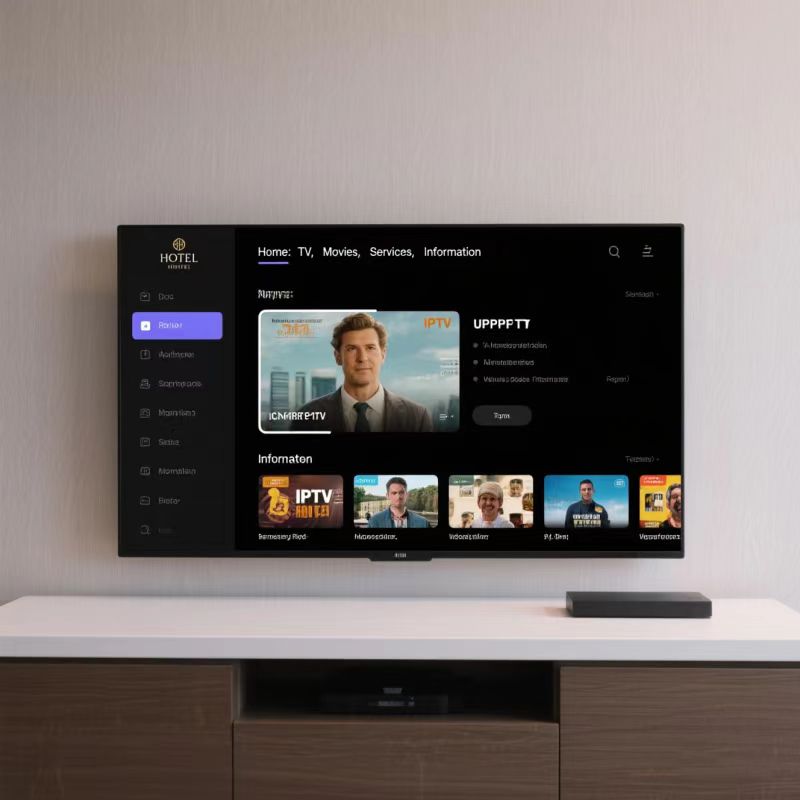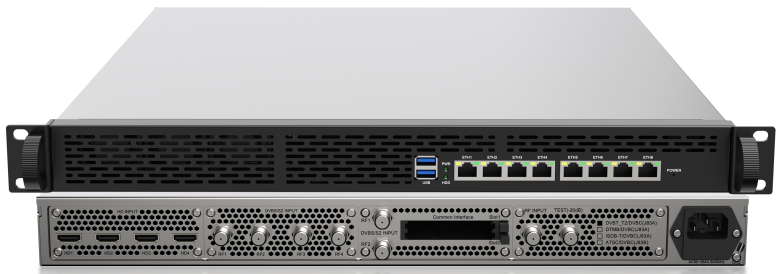Does IPTV Provided by Operators Consume Internet Bandwidth?

In the digital age, home broadband networks are handling an increasing number of demands, from online videos and gaming to remote work. Bandwidth allocation has become a focal point for users. IPTV (Internet Protocol Television), a technology that delivers television content over internet protocol, is widely offered by operators. Does this service affect the overall bandwidth of home networks? This question troubles many users, especially those who require both high-speed internet and smooth television viewing.
How IPTV Works?
To understand whether IPTV consumes bandwidth, it is essential to first grasp its transmission mechanism. Traditional TV signals are delivered via cable, satellite, or terrestrial broadcasting, while IPTV relies entirely on broadband networks. Operators use dedicated network protocols to transmit TV signals in the form of data packets to the user's set-top box, which then decodes them into video and audio output for the television.
The key lies in the fact that IPTV transmission methods typically differ from regular internet traffic. Many operators employ **multicast** technology to distribute TV signals. Multicast is an efficient data transmission method that allows a single data source to send the same data stream to multiple recipients simultaneously, rather than establishing individual connections for each user (as in point-to-point unicast). This approach significantly reduces network resource consumption, especially when a large number of users are watching the same channel simultaneously.
Bandwidth Usage
So, does IPTV actually consume the total bandwidth of a home broadband connection? The answer depends on the operator's network architecture:
1. IPTV with a Dedicated Channel: Many operators (such as China Telecom and China Unicom) use a dedicated network to carry IPTV traffic. This means IPTV and regular internet traffic are physically or logically separated. In this case, even if you are watching 4K ultra-high-definition IPTV, it will not affect the internet speed of other devices, as IPTV uses the operator's internal dedicated channel and does not consume the shared bandwidth of the home broadband connection.
2. IPTV with Shared Bandwidth: Some operators (particularly secondary broadband providers) may not have a dedicated IPTV network and instead allow IPTV and regular internet traffic to share the same bandwidth. In this scenario, watching high-definition IPTV will indeed consume a portion of the total home broadband bandwidth. For example, a single 4K IPTV stream may consume 30-50 Mbps of bandwidth. If your broadband plan offers 100 Mbps, the remaining available bandwidth will be reduced, potentially affecting the network speed of other devices.
How to Determine Whether IPTV Consumes Bandwidth?
If you are unsure whether your IPTV service affects your broadband speed, you can use the following methods to test it:
1. Monitor Network Usage: While watching IPTV, run a speed test on a computer or smartphone and compare the results with the speed when IPTV is turned off. If the speed test results show a significant decrease, it indicates that IPTV is consuming shared bandwidth.
2. Check Router Traffic Monitoring: Some advanced routers can display real-time traffic for each device. If you notice the IPTV set-top box consuming a large amount of bandwidth, it is likely using the regular internet channel.
3. Contact Your Operator: The most direct method is to reach out to your broadband operator and ask whether IPTV is independent of your home broadband bandwidth.
Optimization Suggestions
If you find that IPTV is indeed affecting your home network, consider the following optimization strategies:
1. Upgrade Your Broadband Plan: If your bandwidth is relatively low (e.g., below 100 Mbps), upgrading to a higher bandwidth plan can alleviate congestion issues.
2. Use a Dual-Band Router: Assign IPTV and other devices to different frequency bands (e.g., IPTV on 5GHz, smartphones and computers on 2.4GHz) to reduce wireless interference.
3. Adjust IPTV Video Quality: Some IPTV services allow you to adjust the resolution. Lowering the video quality (e.g., switching from 4K to 1080p) can reduce bandwidth consumption.
Conclusion
In summary, whether IPTV consumes home broadband bandwidth largely depends on the operator's technical approach. In most cases, mainstream operators use dedicated channels for IPTV transmission, ensuring it does not impact the internet experience. However, if your broadband provider does not support a dedicated network, IPTV could become a "hidden killer" of bandwidth. Therefore, when selecting broadband and IPTV services, it is advisable to understand the operator's network architecture in advance to ensure the efficient operation of your home network.
For users seeking an optimal experience, understanding these technical details can help in better planning their home networks, allowing various applications such as television, gaming, and video conferences to coexist harmoniously without the frustration of bandwidth competition.

"Click to Experience SOUKA's Newest IPTV Headend+IPTV Server in One Device"

